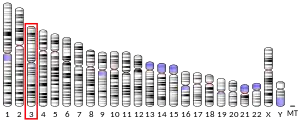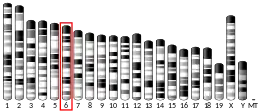| CNTN4 | |||||||||||||||||||||||||||||||||||||||||||||||||||
|---|---|---|---|---|---|---|---|---|---|---|---|---|---|---|---|---|---|---|---|---|---|---|---|---|---|---|---|---|---|---|---|---|---|---|---|---|---|---|---|---|---|---|---|---|---|---|---|---|---|---|---|
| |||||||||||||||||||||||||||||||||||||||||||||||||||
| Identifiers | |||||||||||||||||||||||||||||||||||||||||||||||||||
| Aliases | CNTN4, AXCAM, BIG-2, contactin 4 | ||||||||||||||||||||||||||||||||||||||||||||||||||
| External IDs | OMIM: 607280 MGI: 1095737 HomoloGene: 14257 GeneCards: CNTN4 | ||||||||||||||||||||||||||||||||||||||||||||||||||
| |||||||||||||||||||||||||||||||||||||||||||||||||||
| |||||||||||||||||||||||||||||||||||||||||||||||||||
| |||||||||||||||||||||||||||||||||||||||||||||||||||
| |||||||||||||||||||||||||||||||||||||||||||||||||||
| Wikidata | |||||||||||||||||||||||||||||||||||||||||||||||||||
| |||||||||||||||||||||||||||||||||||||||||||||||||||
Contactin-4 is a protein that in humans is encoded by the CNTN4 gene.[5][6][7]
The protein encoded by this gene is a member of the immunoglobulin superfamily. It is a glycosylphosphatidylinositol (GPI)-anchored neuronal membrane protein that functions as a cell adhesion molecule. It may play a role in the formation of axon connections in the developing nervous system. Several alternatively spliced transcript variants of this gene have been described, but the full-length nature of some of these variants has not been determined.[7]
Genomics
The gene is located on the short arm of chromosome 3 (3p26.3). It is a single copy gene within the Watson (plus) strand, 957,399 bases in length and encodes a protein of 1026 amino acids (molecular weight 113.454 kDa)
Clinical relevance
Abnormal expression of this gene has been implicated in some cases of autism.[8] It has also been associated with cerebellar degeneration in spinocerebellar ataxia type 16.
References
- 1 2 3 GRCh38: Ensembl release 89: ENSG00000144619 - Ensembl, May 2017
- 1 2 3 GRCm38: Ensembl release 89: ENSMUSG00000064293 - Ensembl, May 2017
- ↑ "Human PubMed Reference:". National Center for Biotechnology Information, U.S. National Library of Medicine.
- ↑ "Mouse PubMed Reference:". National Center for Biotechnology Information, U.S. National Library of Medicine.
- ↑ Yoshihara Y, Kawasaki M, Tamada A, Nagata S, Kagamiyama H, Mori K (Mar 1996). "Overlapping and differential expression of BIG-2, BIG-1, TAG-1, and F3: four members of an axon-associated cell adhesion molecule subgroup of the immunoglobulin superfamily". J Neurobiol. 28 (1): 51–69. doi:10.1002/neu.480280106. PMID 8586965.
- ↑ Zeng L, Zhang C, Xu J, Ye X, Wu Q, Dai J, Ji C, Gu S, Xie Y, Mao Y (Aug 2002). "A novel splice variant of the cell adhesion molecule contactin 4 ( CNTN4) is mainly expressed in human brain". J Hum Genet. 47 (9): 497–9. doi:10.1007/s100380200073. PMID 12202991.
- 1 2 "Entrez Gene: CNTN4 contactin 4".
- ↑ "Gene for brain connections linked with autism". www.newsdaily.com. Archived from the original on 2008-03-19.
External links
- Human CNTN4 genome location and CNTN4 gene details page in the UCSC Genome Browser.
Further reading
- Walsh FS, Doherty P (1992). "Glycosylphosphatidylinositol anchored recognition molecules that function in axonal fasciculation, growth and guidance in the nervous system". Cell Biol. Int. Rep. 15 (11): 1151–66. doi:10.1016/0309-1651(91)90061-M. PMID 1838307.
- Miura S, Shibata H, Furuya H, et al. (2006). "The contactin 4 gene locus at 3p26 is a candidate gene of SCA16". Neurology. 67 (7): 1236–41. doi:10.1212/01.wnl.0000238510.84932.82. PMID 17030759. S2CID 34201347.
- Liu T, Qian WJ, Gritsenko MA, et al. (2006). "Human plasma N-glycoproteome analysis by immunoaffinity subtraction, hydrazide chemistry, and mass spectrometry". J. Proteome Res. 4 (6): 2070–80. doi:10.1021/pr0502065. PMC 1850943. PMID 16335952.
- Gerhard DS, Wagner L, Feingold EA, et al. (2004). "The status, quality, and expansion of the NIH full-length cDNA project: the Mammalian Gene Collection (MGC)". Genome Res. 14 (10B): 2121–7. doi:10.1101/gr.2596504. PMC 528928. PMID 15489334.
- Fernandez T, Morgan T, Davis N, et al. (2004). "Disruption of contactin 4 (CNTN4) results in developmental delay and other features of 3p deletion syndrome". Am. J. Hum. Genet. 74 (6): 1286–93. doi:10.1086/421474. PMC 1182094. PMID 15106122.
- Ota T, Suzuki Y, Nishikawa T, et al. (2004). "Complete sequencing and characterization of 21,243 full-length human cDNAs". Nat. Genet. 36 (1): 40–5. doi:10.1038/ng1285. PMID 14702039.
- Hansford LM, Smith SA, Haber M, et al. (2004). "Cloning and characterization of the human neural cell adhesion molecule, CNTN4 (alias BIG-2)". Cytogenet. Genome Res. 101 (1): 17–23. doi:10.1159/000073412. PMID 14571131. S2CID 41391308.
- Strausberg RL, Feingold EA, Grouse LH, et al. (2003). "Generation and initial analysis of more than 15,000 full-length human and mouse cDNA sequences". Proc. Natl. Acad. Sci. U.S.A. 99 (26): 16899–903. Bibcode:2002PNAS...9916899M. doi:10.1073/pnas.242603899. PMC 139241. PMID 12477932.
- Kamei Y, Takeda Y, Teramoto K, et al. (2001). "Human NB-2 of the contactin subgroup molecules: chromosomal localization of the gene (CNTN5) and distinct expression pattern from other subgroup members". Genomics. 69 (1): 113–9. doi:10.1006/geno.2000.6310. PMID 11013081.
- Mimmack ML, Saito H, Evans G, et al. (1997). "A novel splice variant of the cell adhesion molecule BIG-2 is expressed in the olfactory and vomeronasal neuroepithelia". Brain Res. Mol. Brain Res. 47 (1–2): 345–50. doi:10.1016/S0169-328X(97)00104-6. PMID 9221934.



